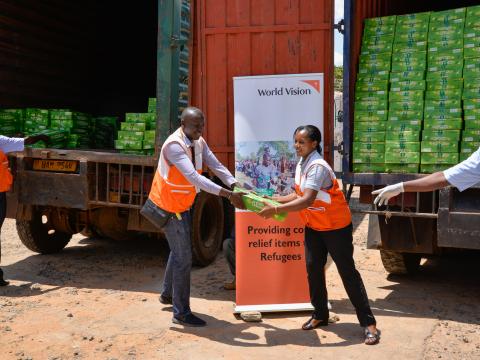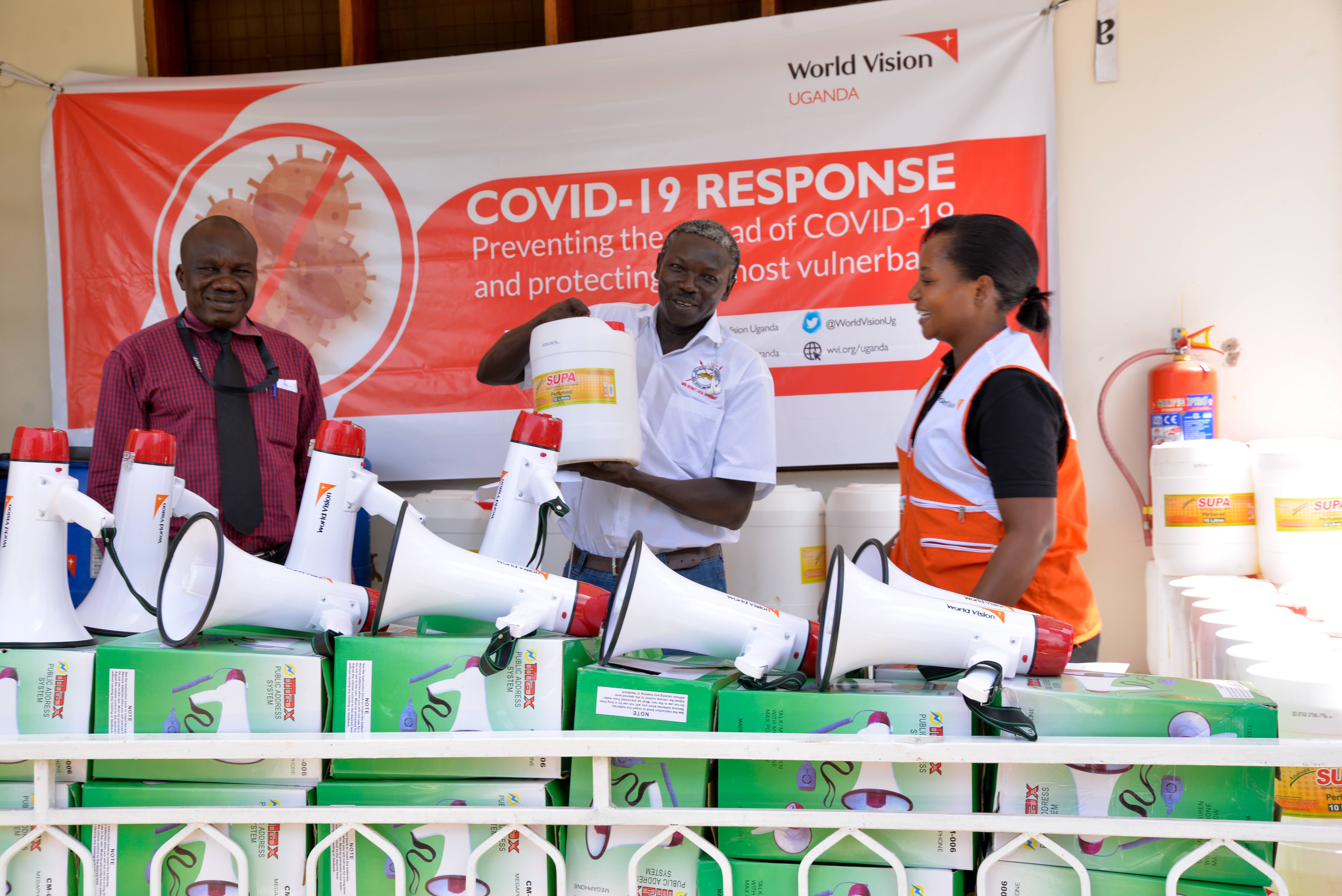COVID-19: World Vision starts emergency response in Ugandan refugee settlements

By Aggrey Nyondwa Kikobera, Joanitah Asiimire, Communication Officials, World Vision Uganda
Children and other vulnerable groups in fragile contexts are among those that will be greatly affected by the ongoing COVID-19 outbreak. It has been two weeks now since schools closed in Uganda - this including the closure of child-friendly spaces and Early Childhood Development Centres (ECDs). The closure of schools was shortly followed by the closure of Uganda’s borders and the restriction of movement of people, which resulted in reduced intervention by aid agencies. Parents now have a harder time providing basic essentials like soap, food and water to their children. Households and health centres still lack basic supplies, facilities, and information to fight against the spread of COVID-19 (e.g. soap, hand-washing facilities, protective equipment and information/awareness).
On April 2, World Vision in Uganda launched a US$1,010,000 COVID-19 Emergency Response to support the refugee communities in West Nile and 53 districts that we operate in. We are partnering with the Uganda Ministry of Health and local government to set up isolation centres with mattresses; provide food for suspected cases; train Village Health Teams (VHTs) to carry out door-to-door sensitisation with megaphones; distribute hand-washing facilities and soap to households and health centres; provide personal protective equipment for health workers; carry out sensitisation and awareness campaigns, and support coordination activities at district level.
The response was kicked off with a handover of 4,050 boxes of soap (40,500 bars) to the Office of the Prime Minister. The soap is to support about 150,000 vulnerable children and people with special needs in refugee settlements.

The response will primarily target children under World Vision care and follow up in Bidibidi, Rhino, Imvepi, Parolinya, Omugo and Adjumani refugee settlements.
“Today, we are delighted to hand over this soap to support the struggling refugee communities here in West Nile,” Mary Njeri, the Acting World Vision Refugee Response Director in Uganda.
“This is part of a package that also has other components such as sensitisation and awareness-creation about the virus, and also support to health facilities. We are also ensuring that our staff have the protective gear they need to keep safe during this response,” she added.
Solomon Saka, the Refugee Desk Officer in West Nile, said: “I would like to appreciate World Vision Uganda’s response to support the Government of Uganda in the COVID-19 crisis, particularly the prevention strategy.”
Logistically, the organisation has contributed over 1,000 litres of fuel, vehicles to facilitate district task forces, media airtime, medical supplies and megaphones to be used by the local authorities in sensitising communities about the spread of the virus.

How prepared are the children?
According to the World Vision WASH Project Manager Dithan Mukiibi, the WASH programme focuses on teaching children to maintain proper hygiene and sanitation in their communities. This is done through hygiene clubs in schools, with hand-washing among the key skills that members acquired.
“Our WASH programme has always targeted children in schools and we are confident that the hygiene skills they learned in these clubs will be very helpful in the fight against the spread of COVID-19; especially hand-washing,” Dithan said.
“We, however, understand that most of these families cannot afford the required soap and sanitisers. This is why it is important that we reach out with some of these items to enable them do their part in the fight against the spread of the virus,” he added.
Moses Odur, the Humanitarian Emergency Affairs Manager, says World Vision Uganda needs US$ 3.5 million to promote preventative measures to slow the spread of COVID-19, support health systems and workers and to provide children and their families multi-sector support during and after the crisis.
Over 800,000 children have been forced to flee their homes because of conflict, violence and persecution and are already living in precarious and insecure conditions in the refugee settlements in Uganda, The impact of restricted freedom of movement and of service suspension on vulnerable children must be fully understood and responded to.
- See how children are working as ambassadors in the fight against the spread of COVID-19 in West Nile Refugee settlements
- Children like Innocent are determined to join the fight to save their homes and communities from COVID-19
- Wondering how essential World Vision's critical humanitarian interventions like food distribution are going on in the refugee settlements amidst COVID-19? This is how...